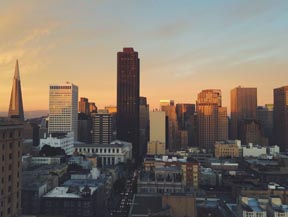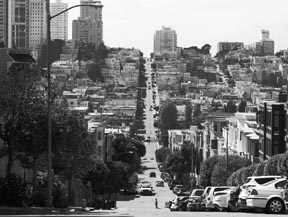 As a board member of the BerkeleyHaas Alumni Network Silicon Valley chapter, I teamed with our colleagues and the Sustainability Alumni Group at BerkeleyHaas in launching our first program addressing climate change and global warming.
As a board member of the BerkeleyHaas Alumni Network Silicon Valley chapter, I teamed with our colleagues and the Sustainability Alumni Group at BerkeleyHaas in launching our first program addressing climate change and global warming.
On June 27, we hosted a panel discussion on “Climate Real Talk,” where we gathered liked-minds from Berkeley Haas’ academia and select industry experts to give us a real talk about where our carbon footprint is now, where it’s headed, and what personal actions that we can take to stop amplifying climate change and global warming that are already here.
Our panel comprised of:
Professor Andrew Isaacs, a Leading Climate Change and Sustainability Expert
Emily Chueh, Co-Founder, Okapi Reusables, and
Fiona Baker, Strategic Sustainability Science Program Manager, Electric Power Research Institute (EPRI)
Here’re a few actionable takeaways from our “Climate Real Talk” panel discussion:
1) Minimizing usage of fossil fuels.
If we can be mindful about how much we drive using gasoline, how much we fly using jet fuels, and how much coals are being used to produce energy, we’re moving a step in a positive direction to minimize usage of fossil fuel that contributes to increased carbon emissions.
2) Zero carbon emission is an ideal state, making progress towards carbon footprint reduction in any key aspects of our lives are more important.
Think about “Reduce, Re-use, and Recycle” as a basis to live sustainably. If we can make conscious decisions daily about reducing anything that contributes to higher carbon emission, we should embrace it.
If we cannot reduce, we can consider re-using items as many times as possible, and extend the life of our tech gadgets as long as possible. So, things like plastic cups, paper, computer or clothing waste don’t get piled up in our landfills too quickly.
After we’re done with our re-use, we can recycle outdated or wear-and-tear items in appropriate ways to minimize effects to climate change.
3) Going beyond personal actions and unifying others to support living sustainably by teaching our community to respect our mother Earth, and treat her as our national treasure.
The damage that global warming has done is not reversible. The way to move forward is by teaching others to take care of how they want to conduct their lives in terms of their food consumption, energy usage and transportation habits.
Some examples on how we can modify our lifestyles to live sustainably:
Food consumption: Eat red meat less frequently.
Energy: Charge your electric car during low-usage hours. Buy energy from community-based clean energy grids.
Transportation: Work close to where you live. Conduct meetings via Zoom instead of driving or flying. Invest in an EV car if you drive more than 5K miles/year.
These are a few examples of things that we can do to start the process of slowing down amplification of climate change.
Like the old saying goes: “it takes a village to make a transformational change,” same goes for supporting our climate change movement.
It takes one to create a small ripple. It will take a collective effort from everyone to create even bigger ripples that will multiple the effect and lead to exponential change for the good of our climate and our planet Earth.
About Jenny: Jenny Huang is the Founder & CEO of Jenny Huang Marketing, LLC. She is brand and marketing leader who is passionate about helping young and progressive companies in sharing their stories powerfully and authentically, and launching their products cohesively to the world. You can get in touch with Jenny directly via email info@jennyhuangmarketing.com
PC: Robert Lukeman of Unsplash










